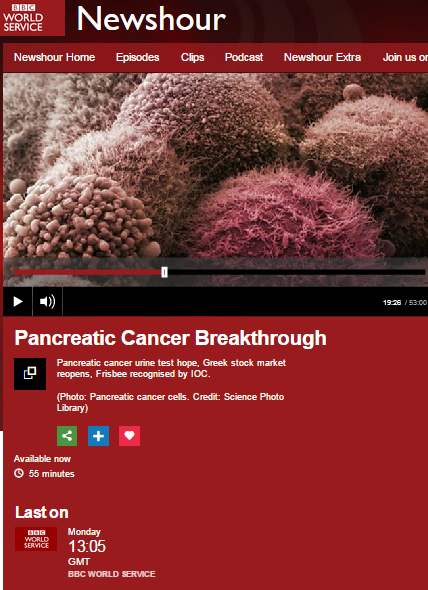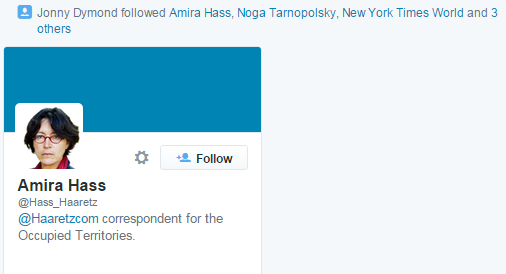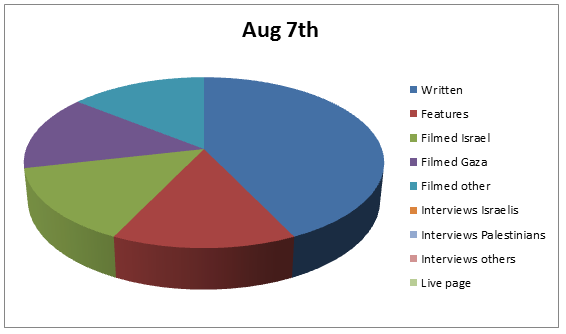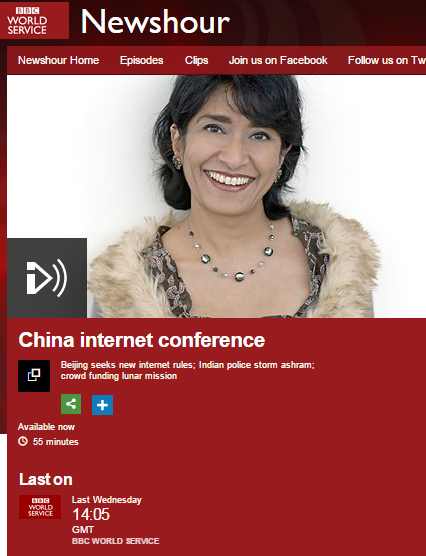The inconsistency of BBC reporting on terrorism and the corporation’s devout avoidance of the use of the word terror and its derivatives when reporting on Palestinian attacks against Israelis, are topics which, sadly, feature regularly on these pages.
Last November, following the attack in Har Nof, Jerusalem, we observed that:
“One outstanding – although predictable – feature of the BBC’s coverage is that despite the fact that the core story was about a terror attack perpetrated on the congregation of a synagogue, in all of the above reports the word terror and its derivatives were never used directly by the BBC. References to terrorism came only in the form of quotes from Israeli officials (placed in inverted commas by the BBC), from Israeli interviewees or from the US Secretary of State in the filmed report of his statement to the press.”
Nine months later, a surprise was in store for BBC audiences unused to seeing the word ‘terror’ in the corporation’s Middle East reporting.
The August 3rd edition of the BBC World Service radio programme ‘Newshour’, presented by Razia Iqbal, included an item on the subject of administrative detention which is available here from 19:26. Iqbal discussed the issue with BBC journalist Jonny Dymond – apparently newly arrived in Jerusalem.
RI: “Now let’s go to our Jerusalem bureau and join our correspondent Jonny Dymond to discuss a story about Israel’s security cabinet approving detaining Jewish extremists without trial. This follows a Palestinian toddler who was killed in an arson attack in his home. Jonny; just…erm…is that the reason why this has come up now? Just give us a little bit of background.”
JD: “Yes it’s a direct response to an attack that happened on Friday when a home of a Palestinian family came under attack. They were…it was firebombed in the small hours of the morning on Friday…err…leading to severe injuries to the mother and father and a four year-old boy and the death of an eighteen year-old [sic] toddler. And amid a fair amount of revulsion and outrage, the Israeli security cabinet announced that it would authorize administrative detention – which is, as you say, imprisonment without trial – for those suspected of what are effectively Jewish terror attacks because the finger of blame was immediately pointed at ultra-nationalists, probably in the settler community – those who live in the West Bank; the Palestinian territories on the West Bank.” [emphasis added]
Dymond’s classification of an arson attack on a sleeping family as terror is of course appropriate. However it does not come in a vacuum.
It comes from a representative of an organization which refrained from describing the attack in which four rabbis were hacked to death or another attack in which a baby in a pram was deliberately run down in the same terms. It comes from a corporation which excused its failure to adequately report the slaughter of another baby and her sleeping family with the claim that it was a “very busy news period” and avoided using the word terror in its follow-up coverage of the Fogel family murders. And it comes from an organization which completely ignored the attempted murder by firebombing of an eleven year-old girl and her father last December and failed to report on three fatal terror attacks in April and June 2015.
Notable too is Dymond’s use of the word ‘Jewish’ before the phrase ‘terror attacks’. We do not of course see the comparable term ‘Muslim terror attacks’ used in BBC coverage: the prevailing term is ‘Islamist’ and recognized terror organisations such as Hamas are euphemistically described as “Palestinian militant Islamist groups”.
Whilst similar terminology to that employed by Dymond has been used by Israeli officials and quoted by the BBC, the BBC’s guidance on “language when reporting terrorism” tells its journalists that “[w]e should not adopt other people’s language as our own” and hence there is obviously a need for the BBC to address the question of why the use of the generalized phrase “Jewish terror attacks” is acceptable if “Muslim terror attacks” is not.
Likewise, another issue obviously in need of consideration relates to the BBC’s adoption and amplification of terminology used by governments and officials. When the Israeli government defines attacks carried out by Israeli citizens as terrorism and the BBC reports that there is obviously no problem. But seeing as the Palestinian government never describes attacks carried out by its citizens in the same terms, it is clearly problematic for the BBC to refrain from clarifying to audiences in its own words what those attacks actually are. After all, the key message in that above mentioned guidance is “[o]ur policy is about achieving consistency and accuracy in our journalism” and it is obviously problematic if the BBC’s description of attacks as terrorism – or not – hinges upon the honesty of the government concerned.
Another issue worthy of discussion whilst this story is still in its early stages is the suitability of BBC’s use of the term “ultra-nationalists” – defined as “[e]xtreme nationalism that promotes the interest of one state or people above all others”. As was reported in an article appearing on the BBC News website on August 3rd, one of those recently arrested is Meir Ettinger – considered a ringleader among Israeli extremists. As the Times of Israel reported, Ettinger appears to have more in common with anarchy than ‘ultra-nationalism’.
“In 2013, Ettinger wrote a document entitled “the rebel manifesto” which calls to bring down the Israeli leadership.
“The idea of the rebellion is very simple. Israel has many weak points, many issues which it handles by walking on eggshells so as to not attract attention. What we’re going to do is simply fire up these powder kegs,” he wrote in the document.
“The aim is to bring down the state, to bring down its structure and its ability to control, and to build a new system. To do it, we must act outside the rules of the state we seek to bring down,” Ettinger wrote.
“We must break the status-quo. In doing so, we must differentiate between ‘breaking’ the state, an act that would insufficiently shed light on the remains and between ‘taking it apart’ which is the same but with care, and with attention. At the end of the day, the goal is to shake up the foundations of the state until we have a situation in which Jews must decide whether they are part of the revolution or part of the repression [of the rebellion],” he went on.”
This ‘Newshour’ programme continued with Jonny Dymond telling audiences:
“Now this administrative detention has been used against Palestinians for many years now – there’s just under four hundred Palestinians in administrative detention – and it’s been used very, very rarely before against…ah… Jewish extremists. But this is the first time that the cabinet has said we are ready to use this and we are ready to act to crack down on these groups and these individuals.”
As of June 2015, there were actually 370 Palestinians in administrative detention and as for Dymond’s claim that “this is the first time” that the Israeli government has shown itself to be “ready to act”, he apparently forgets that three years ago one of his colleagues produced a report which included the following:
“The Israeli authorities say they are determined to put an end to this and orders have gone out to the police and security services.
Mark Regev, spokesman for Israeli Prime Minster Benjamin Netanyahu, said the price-taggers would be stopped.”
Razia Iqbal then introduces an implication which shows how crucial it is for the BBC to properly understand the ideology driving the extremism in order to both meet its own guidelines on accuracy and, more simply, get the story right.
RI: “So the cabinet has initiated this. How much support is there for it inside the Knesset generally because of course there are parties – ultra-nationalist parties – in the Knesset.”
JD: “Yeah, there are – and in the government. I think most people would say that a constituent part of the coalition government is a fairly firmly nationalist force – the Jewish Home party.”
Later on, and despite no arrests having yet been announced in connection with the Duma attack, Iqbal expands her insinuations with the implication that firebombing Palestinian homes is part of Israeli culture:
RI: “There has, Jonny, hasn’t there, been a sense that this has been part of the culture: that these people have been able to get away with attacks like this because it has on some level been encouraged by politicians in the cabinet.” [emphasis added]
Dymond cooperates, lumping construction and lethal arson in the same category.
JD: “Encouraged or a blind eye turned to certainly…ahm….illegal settler actions – if not attacks on property and on people, then the actions of some of the more extreme settler groups in setting up outposts completely against the law. Definitely a blind eye has been turned to that and there has been some encouragement of it at an official level. But this is a step gone a step too far clearly for the government which now wants to rein in those who’ve been carrying out these attacks.”
Whether or not Jonny Dymond is set to become a long-term fixture in the BBC’s Jerusalem bureau is at this point unclear but if he is planning on staying around, expansion of the scope of his reading material would be an aid to producing accurate and impartial reports which are more than a mere rehash of the latest Guardian article and actually contribute to audience understanding of a complex issue rather than just recycling well-worn stereotypes.






